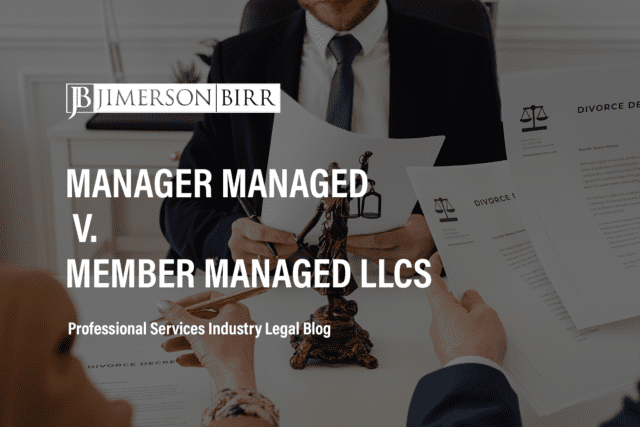What does federal, state, and foreign legal and regulatory compliance entail?
Federal, state, and foreign legal and regulatory compliance are inherent to the adherence of corporations and their boards of directors to the applicable laws and regulations at various jurisdictional levels. In the context of Florida corporate governance and operations, compliance encompasses observing local, state, and federal laws and international regulations when conducting business globally.
One example of when corporate executives or directors require counsel on regulatory compliance is during mergers and acquisitions. Counsel assists the involved parties in understanding and adhering to the regulatory framework governing these transactions. Another example is when a company expands its operations internationally, requiring counsel to ensure compliance with foreign laws and regulations and relevant international trade agreements.
Need help with a matter related to federal, state, and foreign legal and regulatory compliance? Schedule your consultation today with a top corporate and board of directors governance and operations attorney.
Which laws and regulations impact regulatory compliance?
In Florida, several laws and regulations apply to corporate governance and operations, impacting federal, state, and foreign legal and regulatory compliance. For example, at the state level, the Florida Business Corporation Act (FBCA) governs various aspects of corporate governance, such as corporation formation, operation, and dissolution. In addition, the FBCA establishes requirements for corporate filings, shareholder meetings, and the board of directors’ responsibilities, among other provisions.
At the federal level, corporations are subject to various laws and regulations, including the Securities Act of 1933 and the Securities Exchange Act of 1934. These acts regulate the issuance and trading of securities and the reporting requirements for public companies. Additionally, corporations must comply with the Foreign Corrupt Practices Act (FCPA), which prohibits bribery of foreign officials and requires companies to maintain accurate financial records.
What are common issues regarding regulatory compliance that lead to litigation?
The following issues are among the most common in litigation involving federal, state, and foreign legal and regulatory compliance:
- Violations of Environmental Regulations: Companies may face legal action for failing to comply with federal, state, or foreign environmental laws and regulations, leading to potential fines, penalties, or criminal charges.
- Employment Law Violations: Failure to adhere to labor laws, such as minimum wage and overtime requirements, can result in litigation and financial consequences for the company.
- Tax Compliance Issues: Companies that fail to meet tax filing and payment obligations can face legal action from federal and state tax authorities, as well as possible penalties and interest charges.
- International Trade Violations: Non-compliance with import/export regulations, customs laws, and sanctions can result in fines, penalties, or seizure of goods.
- Corporate Governance Failures: Boards of directors may face litigation for breach of fiduciary duty, conflicts of interest, or other governance-related issues, which can lead to reputational damage and financial consequences.
What are effective measures to minimize the risk of litigation over federal, state, and foreign legal and regulatory compliance?
Implementing the following strategies may help mitigate risk:
- Implement Robust Compliance Programs: Develop and maintain comprehensive compliance policies and procedures with clear employee guidelines.
- Regular Training and Education: Provide ongoing training and education for employees on relevant laws and regulations, ensuring they understand their obligations and responsibilities.
- Conduct Internal Audits and Assessments: Review internal processes and controls to identify potential compliance risks and implement corrective actions.
- Retain Legal Counsel: Engage experienced legal counsel to advise on complex regulatory matters and help navigate the ever-changing landscape of laws and regulations.
- Foster a Culture of Compliance: Encourage open communication and reporting of potential compliance concerns, and promote a culture of accountability and ethical behavior.
- Monitor Regulatory Changes: Stay informed of relevant legal and regulatory developments and adjust compliance programs accordingly to maintain adherence to evolving requirements.
When a set of facts is appropriate to meet litigation requirements, there are many paths a claimant may take. We are value-based attorneys at Jimerson Birr, which means we look at each action with our clients from the point of view of costs and benefits while reducing liability. Then, based on our client’s objectives, we chart a path to seek appropriate remedies.
To determine whether your unique situation may necessitate litigation, please contact our office to set up your initial consultation.
Frequently Asked Questions
- What are the critical components of an effective compliance program?
An effective compliance program includes a clear code of conduct, comprehensive policies and procedures, employee training, a dedicated compliance officer, risk assessments, a reporting system, and regular monitoring and auditing.
- How can Florida companies ensure they comply with foreign legal and regulatory requirements?
Companies should thoroughly research the specific requirements of each foreign jurisdiction they operate in, seek guidance from legal counsel, and develop a compliance program that addresses these unique obligations. In addition, regular monitoring, training, and risk assessments are crucial to ensure ongoing compliance.
- What are the potential consequences of non-compliance with federal, state, and foreign legal and regulatory requirements?
Non-compliance can result in significant penalties, including fines, sanctions, loss of business licenses, and reputational damage. In some cases, company executives may face personal liability and imprisonment.
Have more questions about governance or operations for your business?
Crucially, this overview of federal, state, and foreign legal and regulatory compliance does not begin to cover all the laws implicated by this issue or the factors that may compel the application of such laws. Every case is unique, and the laws can produce different outcomes depending on the individual circumstances.
Jimerson Birr attorneys guide our clients to help make informed decisions while ensuring their rights are respected and protected. Our lawyers are highly trained and experienced in the nuances of the law, so they can accurately interpret statutes and case law and holistically prepare individuals or companies for their legal endeavors. Through this intense personal investment and advocacy, our lawyers will help resolve the issue’s complicated legal problems efficiently and effectively.
Having a Jimerson Birr attorney on your side means securing a team of seasoned, multi-dimensional, cross-functional legal professionals. Whether it is a transaction, an operational issue, a regulatory challenge, or a contested legal predicament that may require court intervention, we remain a tireless advocate every step of the way. Being a value-added law firm means putting the client at the forefront of everything we do. We use our experience to help our clients navigate even the most complex problems and come out the other side triumphant.
If you want to understand your case, the merits of your claim or defense, potential monetary awards, or the amount of exposure you face, you should speak with a qualified Jimerson Birr lawyer. Our experienced team of attorneys is here to help. Call Jimerson Birr at (904) 389-0050 or use the contact form to schedule a consultation.
Here are some blogs written by JB attorneys that provide more information about federal, state, and foreign legal and regulatory compliance:

We live by our 7 Superior Service Commitments
- Conferring Client-Defined Value
- Efficient and Cost-Effective
- Accessibility
- Delivering an Experience While Delivering Results
- Meaningful and Enduring Partnership
- Exceptional Communication Based Upon Listening
- Accountability to Goals











